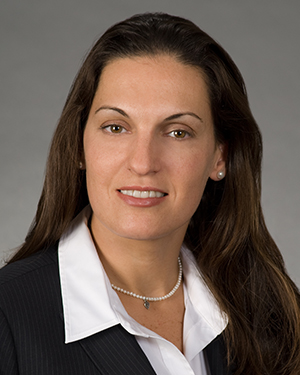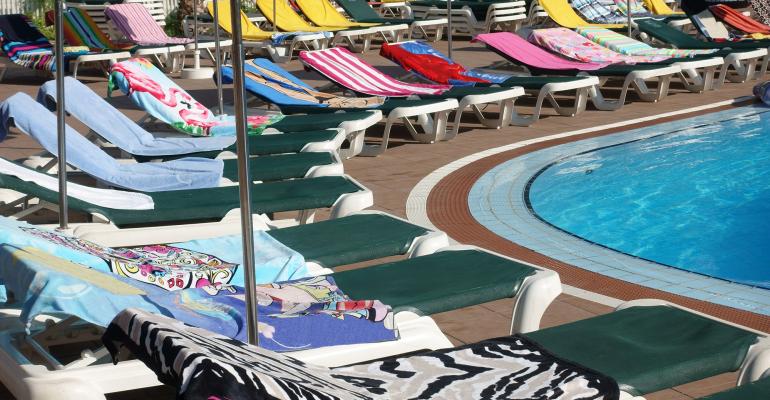Guests are already reserving hotel rooms for what is likely to be a very busy summer. But not every hotel segment is likely to recover at the same pace as the U.S. economy continues to shake off the effects of the coronavirus pandemic.
Investors interested in buying hotels will have to make careful decisions about how quickly their own hotel properties return to business as usual.
“In the peak summer we are going to see the biggest jump in demand probably that we have ever seen,” says Andrea Grigg, global head of hotels asset management for JLL. “However, we have also seen that the different kinds of hotels are going to recover at very different rates.”
WMRE sat down with Grigg to ask her how JLL’s investor clients are planning handle the 29,000 hotel rooms that JLL asset manages on their behalf.
This interview has been edited for style, length and clarity.
WMRE: If I am investor owning a hotel or hotels, how can I tell if my properties are going to benefit from the renewed demand for hotel rooms this summer?
 Andrea Grigg: A lot of the pent-up demand is going to come from the leisure side first. So we are going to see patterns of demand: very busy on weekends, very busy on holidays and then a slowdown of the Monday, Tuesday, Wednesday business. The business travellers, the corporate groups have not resumed travelling in a meaningful way. These are two very important pillars of demand for a hotel. We are expecting to see them back by the fourth quarter of 2021 and definitely in full force by the first quarter of 2022.
Andrea Grigg: A lot of the pent-up demand is going to come from the leisure side first. So we are going to see patterns of demand: very busy on weekends, very busy on holidays and then a slowdown of the Monday, Tuesday, Wednesday business. The business travellers, the corporate groups have not resumed travelling in a meaningful way. These are two very important pillars of demand for a hotel. We are expecting to see them back by the fourth quarter of 2021 and definitely in full force by the first quarter of 2022.
WMRE: What are the biggest decisions that your clients have to make?
Andrea Grigg: They need to be operationally agile… to welcome back that demand. They need to be ready to navigate the shortage of labor… invest in technology …
The last piece of the puzzle is that some hotels stayed open and some hotels closed during the pandemic. Both have to put a lot of effort into re-engaging with the guests. Those hotels that shut down, will have to also make the extra effort to inform their guests that they are re-opened, and if they re-opened, have they re-opened with all of their amenities and services.
WMRE: Is there anything that you and your clients had done more of?
Andrea Grigg: I wish we had known that it would take much longer than we expected to come out of the crisis. Everyone was taken by surprise that the pandemic was not over by the end of the summer.
We should have closed hotels earlier… We should not have waited for management companies to give us the green light to do it.
WMRE: What opportunities did hotel companies find in the pandemic?
Andrea Grigg: Oxford Hotels and Resorts is a hotel management company based out of Chicago.… They were able to secure first-responder stays that allowed the properties managed by them to outperform their competitive set. Boutique management firms like Oxford did an outstanding job … taking more decisive, quicker action than the larger management companies.
WMRE: Do you think it’s easier for a smaller hotel building to do that?
Andrea Grigg: I think it was more a proactive effort by the management company to keep on top of those opportunities, whether it was a 600-room hotel or a 40-room hotel.
WMRE: Are there any hotels that closed that should have stayed open?
Andrea Grigg: At the end of the day, the properties that closed, they had to close and they had the ability to close.… We were running sensitivity analyses—up 20 to 25 versions of them—to make the decision of whether to close or stay open or when eventually to re-open.
That is the decision the owners are making today: whether to re-open for the summer.
WMRE: Are there any good examples of how hotels were able to take care of employees so that when they re-open they have employees to bring back?
Andrea Grigg: Hotels have been really good at keeping communication with employees. The employees that will be called back first are those who can multitask. Properties are being very creative about incentivizing them to return, training them and making sure that the employees feel safe.
WMRE: What is the mistake that hotel owners may be about to make as they decide what to do in the rest of 2021?
Andrea Grigg: Trusting 100 percent what the brand has said without running the numbers themselves.
WMRE: Does the brand have a motive that the owner might not have to be as open as possible, even if the numbers do not quite work?
Andrea Grigg: Look, the hotel operators have many responsibilities. They focus on the guests. They focus on the employees. They focus on the brand standards. They focus on how their brand is going to be represented... And then they focus on the owners.
If you have the brand, you want to open the fitness center, the restaurant, the bar, the rooms—all the rooms. If you are the asset manager you are going to say, ‘let’s open just the rooms and then room service and then let’s see how we do and then we open the restaurant and then we open the spa.’ … You need that third party to find that balance and alignment.





